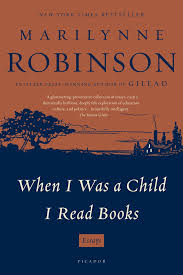
O.K. (or not?) The painting shown in the linked article (below) is grossly sacrilegious, for anyone who acknowledges or practices in the tradition of Christianity. Or at least it should be, even for Evangelical Christians, who still support Donald Trump. Here, he’s a stand-in, as the ultimate self-glorifying victim, the worst sort of reality TV-show gag. Somehow, one can imagine him smiling smugly behind a curtain, as the unseen host, as well.
But the image is also a horrible reflection of how American right-wing media and lax social media have facilitated an alternate reality, and distortion of Christian morality.
No question, this situation has compounded the bizarre Trump Cult. The post of the painting arose the day after Christmas. Note the Trumpie comment in the accompanying article about even questioning the crucified redeemer if he critiqued Trump regarding his ties to Russia and moral compromises thereof. And there’s the declaration of lockstep-with-Trump Congressman Matt Goetz.
Or, given the cast of dubious characters floating in the dark clouds behind the cross, there’s the possibility this is a bold provocation of satire.
As for the painting, read it here, then hear me out afterwards, please.: https://www.dailykos.com/stories/2020/12/27/2004437/-This-Trump-painting-is-probably-the-most-disturbing-artwork-you-will-see?detail=emaildkre
It all prompted me to wonder, what the great theological-oriented writer and thinker Marilynne Robinson, would think of this painting and situation.
The Pulitzer Prize-winning author of “Gilead” and other novels and books of essays, may, or may not, be strongly oriented to visual art. However, her current Facebook page cover-photo image of a nature-infused watercolor painting suggests her responsiveness to painted images. And her rich metaphorical writing should allow a poised perspective on the crude symbolism under consideration.
In June of 2020, Robinson read an online lecture she says she first wrote when the “Trump phenomenon” first began to “settle in.” It is titled “Prophecy and the Present Time,” with an apparent subtitle of “Entropy and Decay.” She says she revised it on with the onset of COVID-19, and revised it a third time in considering what might lead us to sins we have repeated in the past.
This reflects Robinson’s unapologetic Calvinism, which acknowledges the inherent “original sins” and depravity of the human spirit, and flesh. Yet, the retired English professor is also a fairly unrepentant liberal, of the most humane sort. 1
Here is a germane passage from “Prophecy” regarding the political legacy of Trump’s administration, including the tragic response of the government and to coin-counting hospital CEOs, to the pandemic:
Here is a germane passage from “Prophecy” regarding the political legacy of Trump’s administration, including the tragic response of the government and to coin-counting hospital CEOs, to the pandemic:
“Who doesn’t know the consequences of poverty for those who are trapped in it? Should the practice of exploiting them be met with anything but contempt, disgust?
“Here we have the great mystery of polarization laid bare. Shame would have imposed some limits on (such polarization), but in the absence of shame, we must look to legislation in the hope that meaningful laws will actually be enforced…”
But the travesty of the Crucifixion, so disgraced? Probing further, we find Robinson has deeply contemplated Christ’s passion and the human darkness he strove to redeem. And how prophetic was she, before Trump’s election?
In his superly-attuned 2015 essay titled, “Watching the World From Gethsemane: Darkness and the Devastated Self in Marilynne Robinson’s Fiction,” Scott Schomberg comments on the meditations and letter-writing of the central character of Gilead, Congregationalist Minister John Ames, who is dying of cancer in the fictional Iowa town of Gilead:
“Darkness in Robinson’s novels describes something that eludes the language we attempt to give it. Drawn into Gilead and Fingerbone, we move not within static visions of darkness in its most devastating forms—darkness as evil, sinister, corrupt, threatening, darkness as absence, emptiness, ignorance—but into a darkness that astonishes, that blinds with intense brightness. It’s an echo of the psalmist: ‘Darkness is as light to you’ ( Psalm 139:12 NRSV). When Ames describes the decades he spent alone, his long night, he looks back and sees a miracle preparing. Darkness here is like that of a womb.” 2
Lord knows, there is a bitter blend of poignance and pain in such reflection. In Robinson’s latest novel, Jack, dwells on her most problematic character in Gilead, the bedeviled titular man, who struggles with faith and morals, and is atheist more than anything.
But Robinson’s luminous prose is best understood as she understands language. In her essay collection When I Was a Child I Read Books, she wrote, “I tell my students language is music…the music of a piece of fiction establishes the way in which it is to be read, and, in the largest sense, what it means.”
Even in the most anguished music, say in “the cry” of the wordless black jazz musician emitting the experience of racism, there is vibrational power, to overcome, there in the musical breath, the voice, the word made musical. Her quote about darkness rises from a Psalm. 3.

Amazon.com
Who might Jack best signify? A prodigal son, for sure. Beyond that is another discussion, as I have yet to read the novel. But there is the “miracle preparing,” as Robinson, in her “Prophecy” lecture, characterizes 2020’s impassioned, globe-wide social protests, against racism and injustice.
A long, dark night of the soul does eventually end, if one survives it. And so has America’s long night, for now.
Such is the glimmer, the piercing ray of hope, Robinson perseveres for.
_______
- In 2012, President Obama presented Robinson with the National Humanities Medal. Here is a message Obama presented to Robinson upon her retirement:
- Scott Schomberg, “Watching the World From Gethsemane: Darkness and the Devastated Self in Marilynne Robinson’s Fiction”
3. Marilynne Robinson, When I was a Child I Read Books, Picador, 2012, 130

